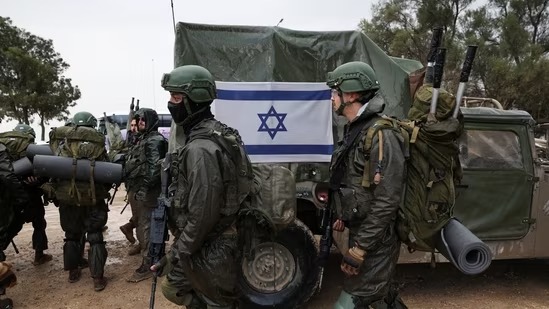Israeli authorities have reported that 135 individuals, some of whom are feared dead, remain captive in the Gaza Strip, held by the Palestinian militant group Hamas. This development comes in the context of the longstanding conflict between Israel and Hamas, with the captives becoming a focal point in the complex dynamics of the region.
As of now, 110 hostages have been released, marking a significant development in the ongoing situation. Out of these, 105 were part of an exchange agreement for Palestinians held in Israeli jails, negotiated during a seven-day truce. The released individuals comprise 33 children, 49 women, and 28 men, reflecting the diverse demographic affected by the conflict.
Furthermore, Israel has repatriated five bodies, including those of Eden Zachariya and Ziv Dado. Zachariya, 28, was abducted during the Tribe of Nova music festival on October 7, while Dado, 36, was a soldier killed on the same day. The retrieval of their bodies underscores the complexity of not only hostage situations but also the broader humanitarian challenges arising from the conflict.
Approximately two weeks after Israel resumed its offensive in Gaza, attention is drawn to the individuals still believed to be in captivity. Out of the total, 118 are presumed to be alive, according to Israeli authorities. The captives include a mix of nationalities, with 107 being Israelis or dual nationals, eight Thai, one Nepali, one Tanzanian, and one French-Mexican. The diverse group emphasizes the international ramifications and humanitarian dimensions of the conflict.
A poignant element of this hostage situation is the case of 10-month-old Kfir Bibas, whose fate remains uncertain. Hamas claims that Kfir, along with his mother Shiri Bibas, 32, and four-year-old brother Ariel, was killed in an Israeli air strike on Gaza. However, Israel has yet to confirm the fate of this family, whose plight has come to symbolize the human toll of the conflict.
Amidst these challenges, efforts are being made to address the broader issue of menstrual hygiene in the region. Smriti Irani, the Union Minister for Women and Child Development, has emphasized the need for a nuanced approach to issues such as paid menstrual leave. She contends that menstruation should not be deemed a “handicap,” opposing the proposal for mandatory paid menstrual leave across all workplaces. Irani stresses the importance of not restricting opportunities for women based on differing viewpoints towards menstruation.
In her response to a question regarding menstrual hygiene policy, Irani highlights the silence and social taboos surrounding menstruation. The Union Ministry of Health and Family Welfare has drafted a menstrual hygiene policy in consultation with stakeholders, signaling a recognition of the need to address the challenges faced by menstruating individuals.
The situation continues to evolve, and the international community remains vigilant about developments in the region. The ongoing conflict underscores the urgency of finding lasting solutions to address not only the immediate humanitarian concerns but also the broader socio-political issues at the heart of the Israel-Hamas conflict. As efforts are made to secure the release of remaining captives and navigate complex diplomatic terrain, the world watches with hope for a resolution that brings lasting peace and stability to the region.


